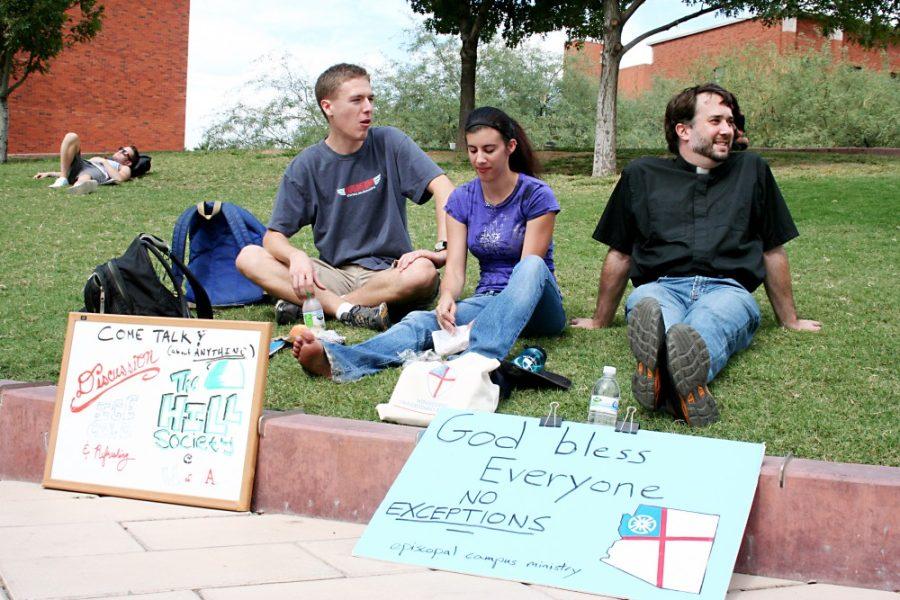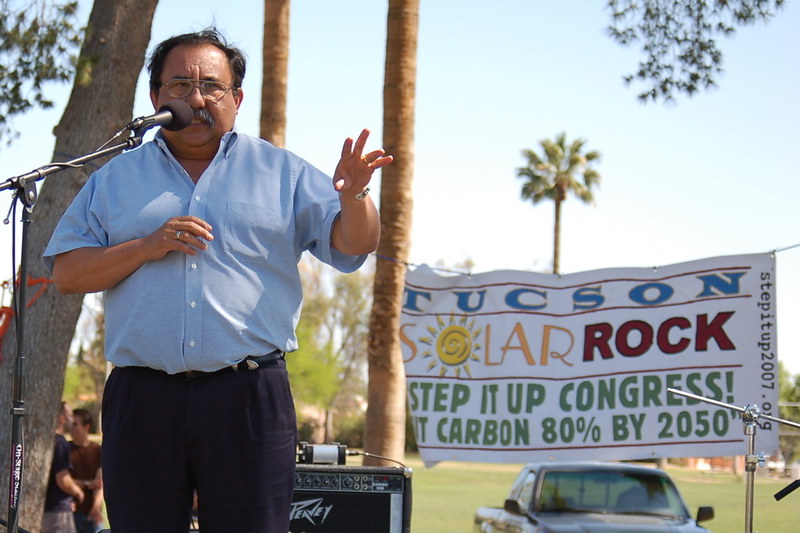The Hill Society is trying to reach new heights as it marks its first year of being a club on the UA campus.
The Hill Society was formed in the spring of 2010 in response to a traveling campus preacher by the name of George Edward Smock, commonly referred to as Brother Jed. Smock is typically known for speaking once a year in the Alumni Plaza at the UA and discussing social topics over the course of a few days.
“There is a sense that there are people frequently here who are preaching,” said Rev. Lucas Mix, faculty advisor to The Hill Society. “It (the club) started because of the idea there would be a group where you could come and converse with people rather than hear what they had to say.”
The purpose of the society is to help promote informal discussion and debates regarding all topics including philosophy, religion, political views and personal opinions.
The club was officially recognized by the Associated Students of the University of Arizona in the fall of 2010 and since then has recruited more than 35 members.
“The goal is to actually communicate with each other rather than simply stand there and go ‘you’re supposed to think what I think,’” said Samantha Becker, a junior studying English and philosophy, who is also the co-president and treasurer of the club. “We will cover anything from what is a soul, to where people stand on politics to how to pick a graduate school, which is completely an unarguable topic. One of our joking mottos is ‘discussion: ice-cold and refreshing.’”
The society meets on Heritage Hill, a small patch of elevated grass and trees located in the Alumni Plaza in front of the Administration building every Wednesday from 2 to 5 p.m. During these meetings, there is not a set agenda to what the group discusses and members are not obligated to attend every meeting.
“We just meet and whatever we decide to talk about starts flowing,” said Spencer Carey, president of The Hill Society and a junior studying math and chemistry.
The club accepts new members throughout the school year and aims to attract a mix of people from different backgrounds and beliefs in order to facilitate interesting group discussion.
“I think we have been very successful so far because we have had a lot of people come in from very diverse backgrounds believe completely opposite things,” Carey said. “They are able to speak in an environment that was completely comfortable for discussion.”








